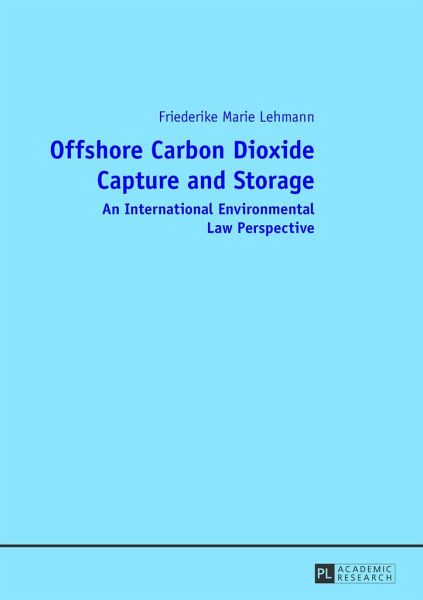
Offshore Carbon Dioxide Capture and Storage
An International Environmental Law Perspective
Versandkostenfrei!
Versandfertig in 6-10 Tagen
88,75 €
inkl. MwSt.

PAYBACK Punkte
0 °P sammeln!
The technology of offshore carbon dioxide capture and storage (CCS) is likely to be deployed on a commercial scale soon. CCS technology could be used to limit global temperature rise to less than 2°C above the pre-industrial level. However, such projects entail many environmental risks, and their effectiveness for the mitigation of climate change is disputed. This book tries to clarify open legal questions regarding European offshore CCS projects in the context of international and regional maritime and climate protection law as well as relevant European legislation. Taking the remaining scie...
The technology of offshore carbon dioxide capture and storage (CCS) is likely to be deployed on a commercial scale soon. CCS technology could be used to limit global temperature rise to less than 2°C above the pre-industrial level. However, such projects entail many environmental risks, and their effectiveness for the mitigation of climate change is disputed. This book tries to clarify open legal questions regarding European offshore CCS projects in the context of international and regional maritime and climate protection law as well as relevant European legislation. Taking the remaining scientific uncertainty into account, this book concludes that the permission and encouragement of offshore CCS projects is highly problematic from an international environmental law perspective.














